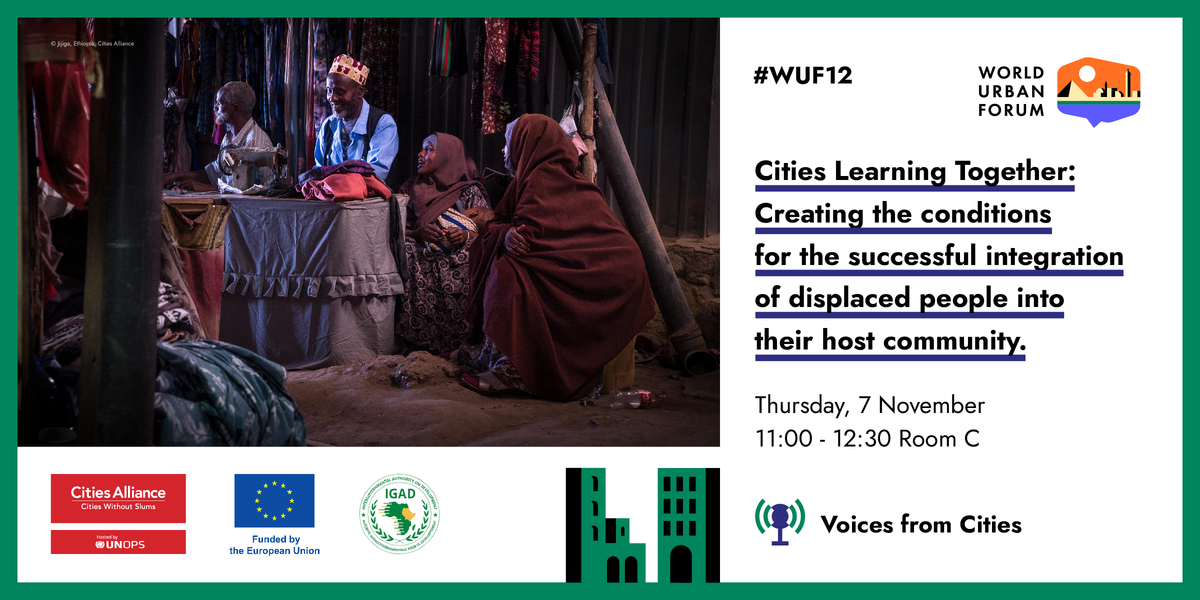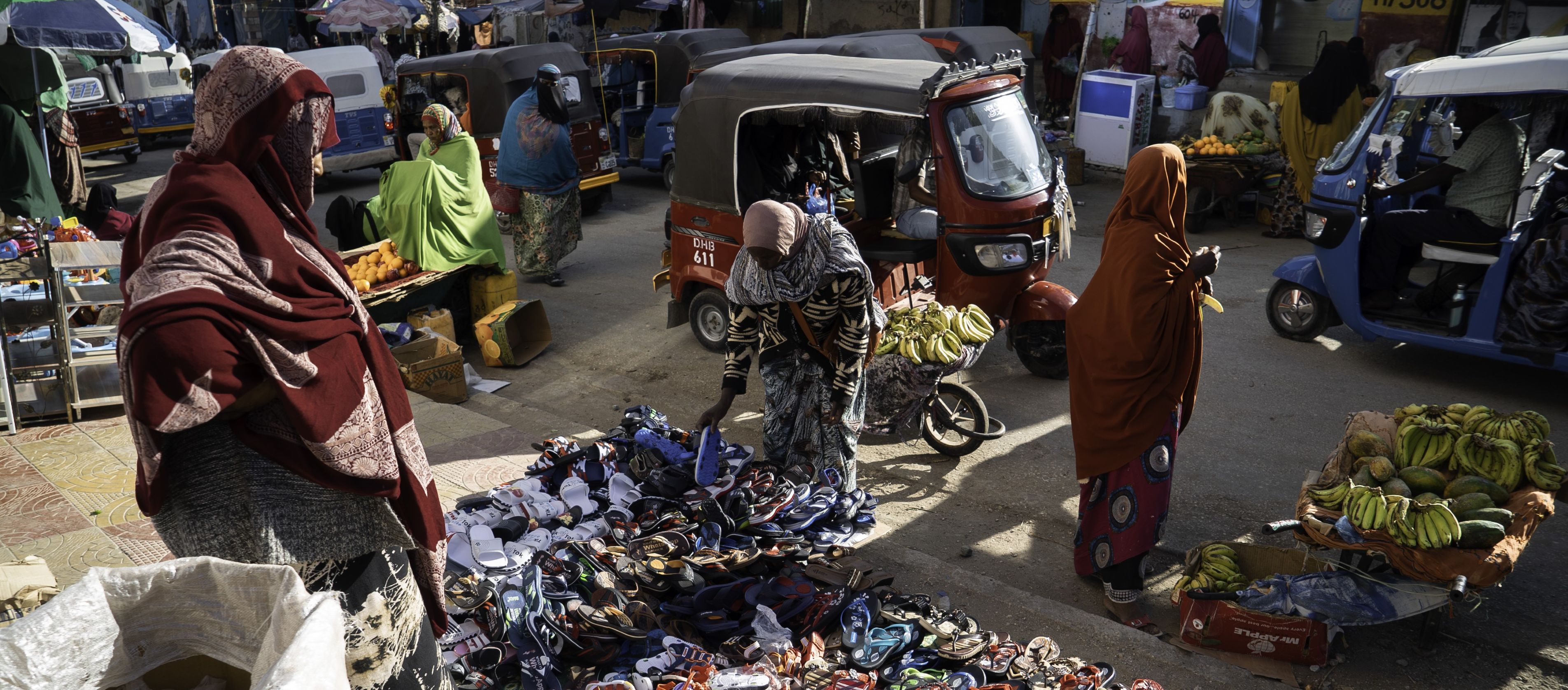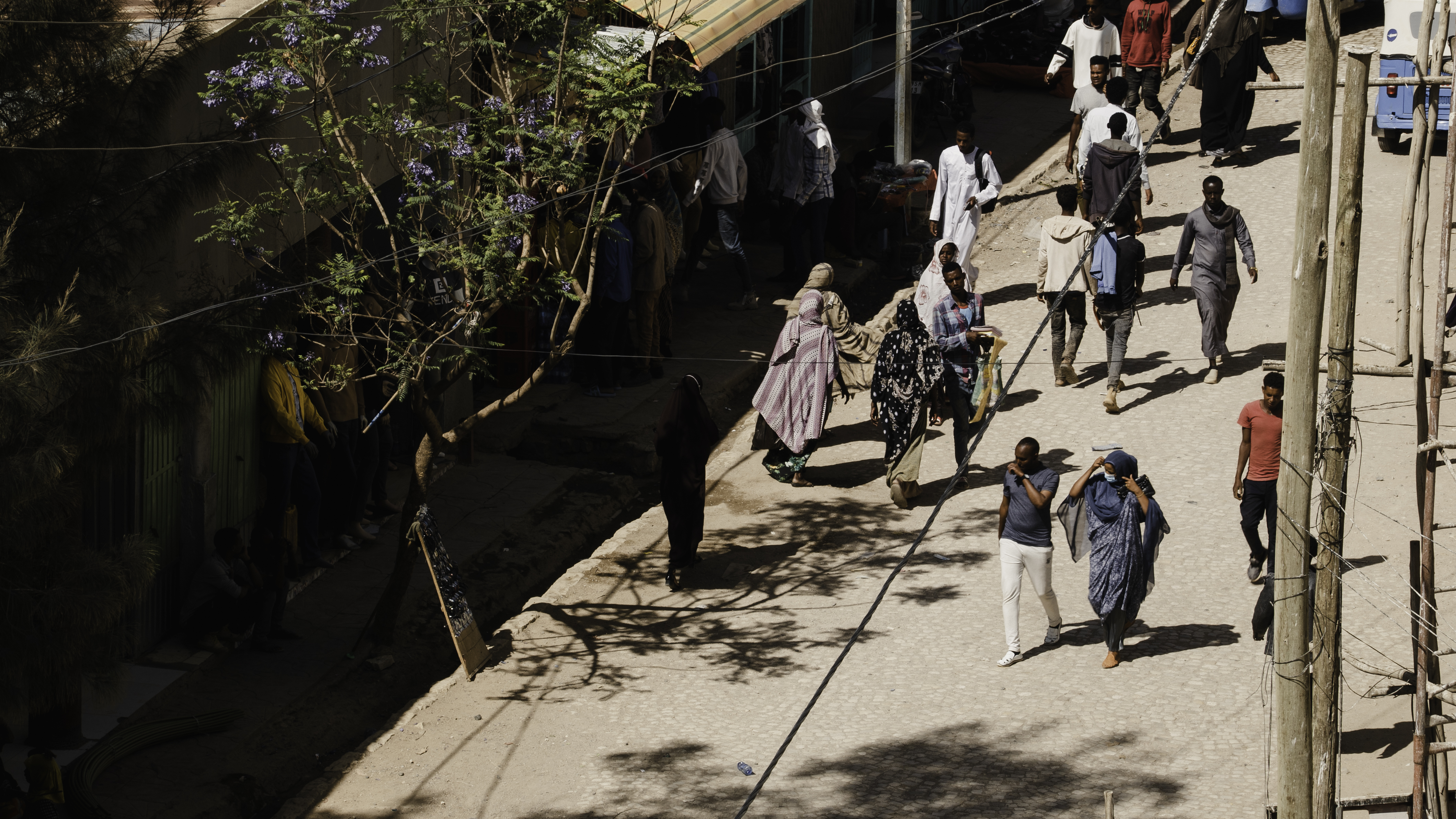Cities, many of them among the world’s most vulnerable, are on the front lines of managing the migration and displacement of large populations driven by crises such as climate change, conflict, and economic instability.
This shift to viewing migration through an urban lens requires an approach that considers the broader impacts of human mobility on the city – making the city the primary focus of programming as it looks for ways to meet the needs of all residents, including displacement-affected communities.
The Sustainable Urban Integration of Displacement-Affected Communities (SUIDAC) programme, implemented by Cities Alliance with funding from the European Union, is already becoming a model for such an approach.
SUIDAC seeks to demonstrate how working with cities can potentially provide a viable alternative to policies of refugee camps.
SUIDAC focuses on working with local authorities to manage human mobility, emphasising community inclusion from the outset, and promoting cooperation between cities. It aims to integrate displaced communities sustainably by strengthening local governance, improving urban planning, and fostering policy dialogue in key cities across Sub-Saharan Africa.
The cities are: Kananga and Tshikapa (the Democratic Republic of the Congo), Assosa and Jigjiga (Ethiopia), Borama and Gabiley (Somalia), Atbara (Sudan), and Koboko and Arua (Uganda).
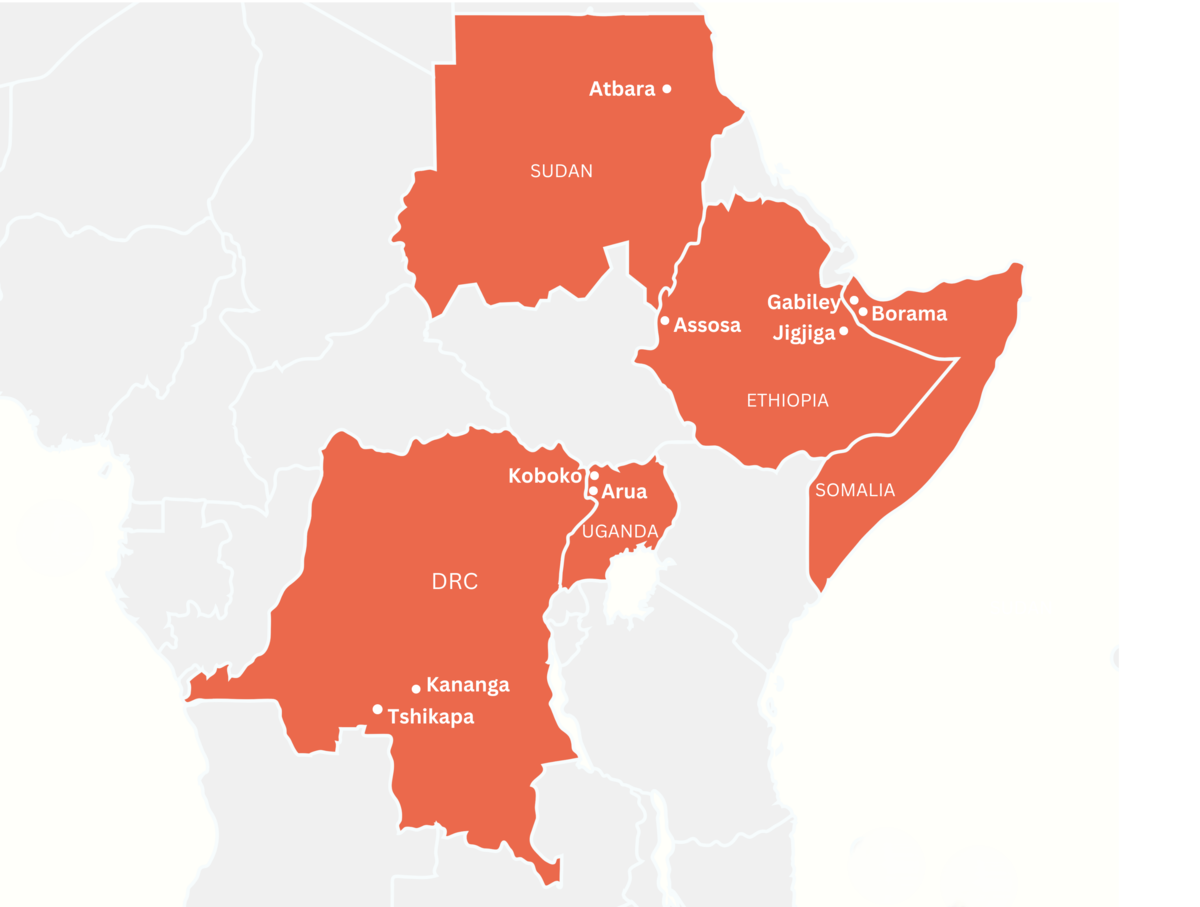
The EUR 30 million programme builds on and expands the Comprehensive Refugee Response Framework (CRRF): Inclusive Urban Development and Mobility Action (2019–2023), which created a regional network for cities in the Horn of Africa to share knowledge and experiences and piloted new approaches to integrating refugees.
The first phase of SUIDAC is underway. The cities are completing a six-month design and analytical phase to produce feasibility studies. This process aims to ensure that the implementation phase is designed by communities, who will choose which activities each municipality will implement.
The success of SUIDAC relies on fostering collaboration among local governments, community organisations, and regional partners.
Municipalities are working with a Technical Implementing Partner (TIP) to support them in achieving their objectives. The TIPs were selected following a competitive call for proposals in July 2024:
- Arua and Koboko: ACAV
- Assosa: International Rescue Committee (IRC)
- Atbara: International Organization for Migration (IOM)
- Borama: Somaliland Association for Youth Salvation (SAYS)
- Gabiley: Taakulo
- Jigjiga: Organization for Welfare and Development in Action (OWDA)
- Kananga and Tshikapa: AVSI
Launch at the 12th World Urban Forum
To formally launch SUIDAC, Cities Alliance, the EU Directorate-General for International Partnerships (EU-DG INTPA), and the Intergovernmental Authority on Development (IGAD) co-hosted the event Cities Learning Together: Creating the Conditions for the Successful Integration of Displaced People into their Host Community at the recent WUF12 in Cairo.
Mayors from two partner cities – Hon. Sanya Wilson of Koboko, Uganda and Hon. Ahmed Shafi Mealin, of Jigijga, Ethiopia – joined the discussion on how cities are integrating displaced populations. The panel highlighted several key messages:
- The importance of including local authorities when managing human mobility from the project design phase;
- The need to promote and encourage cooperation and learning between cities; and
- The importance of addressing migration and displacement in an integrated way, rather than as standalone issues.
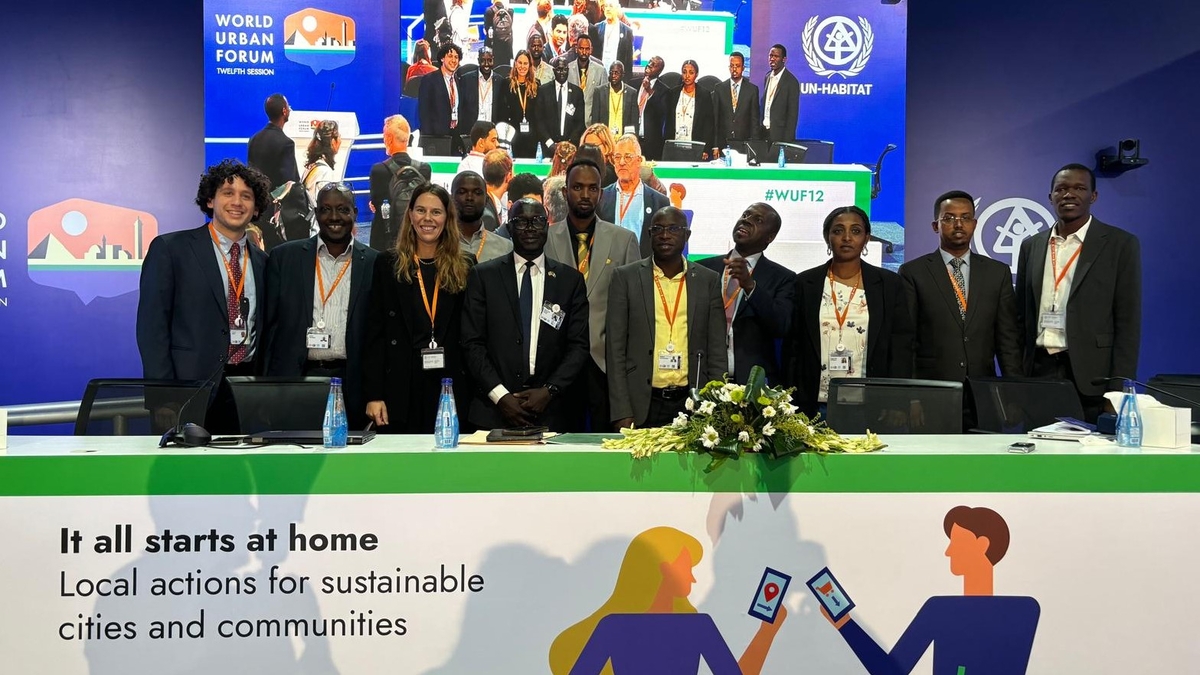
Mayors: Local governments must take the lead on refugee integration
Mayor Sanya of Koboko highlighted SUIDAC as a ground-breaking initiative for managing urban refugees. He emphasised that mayors and local governments should lead refugee integration efforts, citing the substantial progress his city has made.
In Koboko, refugees are integrated as community members, creating a harmonious environment despite policy and resource challenges.
Sanya Wilson, Mayor of Koboko, Uganda
He also advocated strongly for direct funding for cities, allowing mayors to work with community-based organisations (CBOs) and refugees to determine priorities and ensure local ownership and sustainability.
Mayor Shafi agreed that local governments are best positioned to identify problems and design effective solutions for both refugees and host communities. By enabling mayors to lead, initiatives such as SUIDAC are more likely to succeed because they empower local governments to design and implement solutions that are community-driven and locally owned.
He noted that Jigjiga faces numerous challenges, including limited access to clean water and health care, overcrowded schools, and social tensions among refugees and host communities over access to housing and employment. With direct funding from SUIDAC, the city plans to enhance infrastructure, promote refugee integration, and strengthen institutional capacity to improve the quality of life for all residents. This effort begins with a comprehensive strategy to integrate refugees and reduce tensions with host communities.
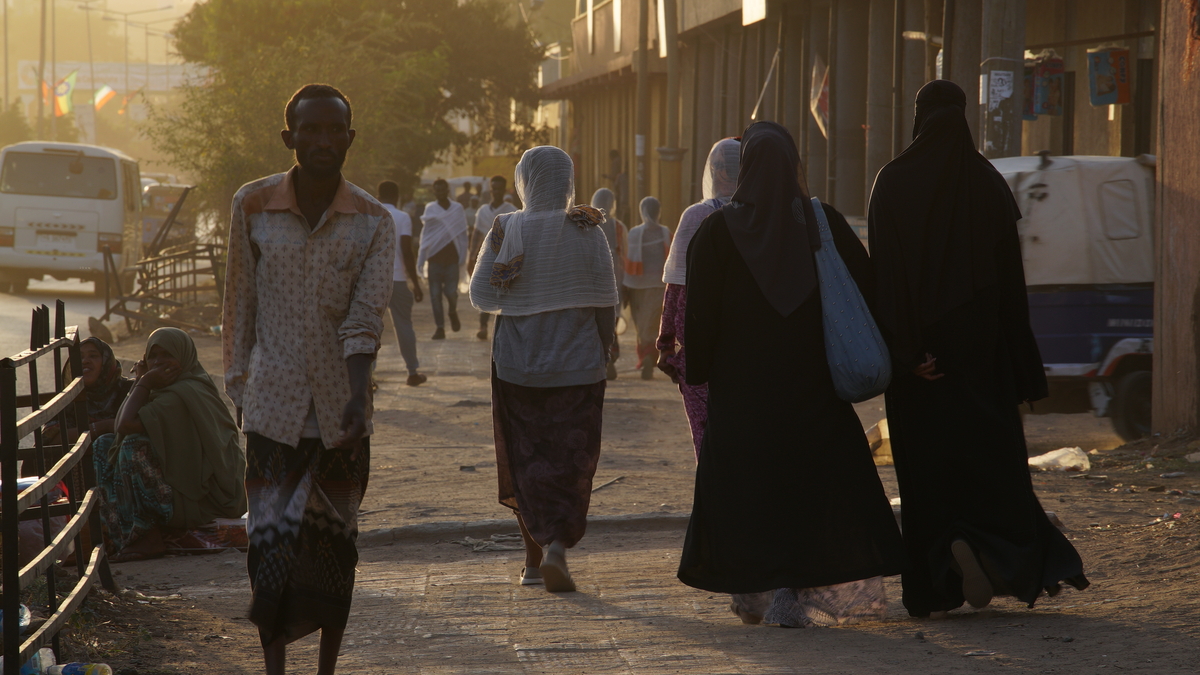
Regional platforms for exchange
Charles Obila, Programme Coordinator at IGAD, said that fostering direct engagement between cities, communities, and political leadership is essential to address the challenges of displacement effectively and ensure local integration and development. Although cities are the best platforms for inclusion and local integration, they face challenges in accessing direct funding and support, as assistance often flows through national governments and cities have limited autonomy to seek external help.
To address this, IGAD is providing platforms for cities to share experiences and advocate for inclusion in decision-making processes at the national and regional levels. The organisation is strengthening partnerships, such as with Cities Alliance through SUIDAC, to amplify local voices and encourage bottom-up approaches where community-driven solutions inform higher-level dialogues and frameworks.
Moving from discussions to localised global solutions
Projects like SUIDAC are important because they help the EU approach programming through a local lens, said Vittorio Capici, International Aid and Development Officer for Migration and Forced Displacement at the European Commission.
He noted that SUIDAC’s predecessor, the CRRF Action, improved education and services for displaced communities; created inclusive development forums involving refugees, host communities, and local organisations; and integrated refugee needs into local development plans. SUIDAC is emerging from that success.
The EU hopes SUIDAC will inspire additional donors and partners to invest in similar transformative programmes as well as a global urban strategy that places local governments at the centre of responses, he added.
There is no shortage of knowledge and understanding of what the needs are. What needs to be done now is the action, translating all these good statements, the studies, the findings, and the reports into practice.
Tsigereda Tafesse Mulugeta, Cities Alliance
Demand for replication
The session sparked significant interest in replication. IGAD expressed its support towards expanding the SUIDAC approach to additional cities. Furthermore, other cities showed interested in replicating the initiative.
SUIDAC will also continue to receive regional and global visibility. Mayor Sanya, a SUIDAC spokesperson, has been elected the 7th President of East African County and Local Government Association (EACLGA) making him the head of the local governments in Burundi, the DRC, Kenya, Rwanda, South Sudan, Somalia, Tanzania, and Uganda for two years.
This energy will feed into SUIDAC’s first peer-learning event, which is planned for February 2025.
Download a report on the key messages discussed in the session
